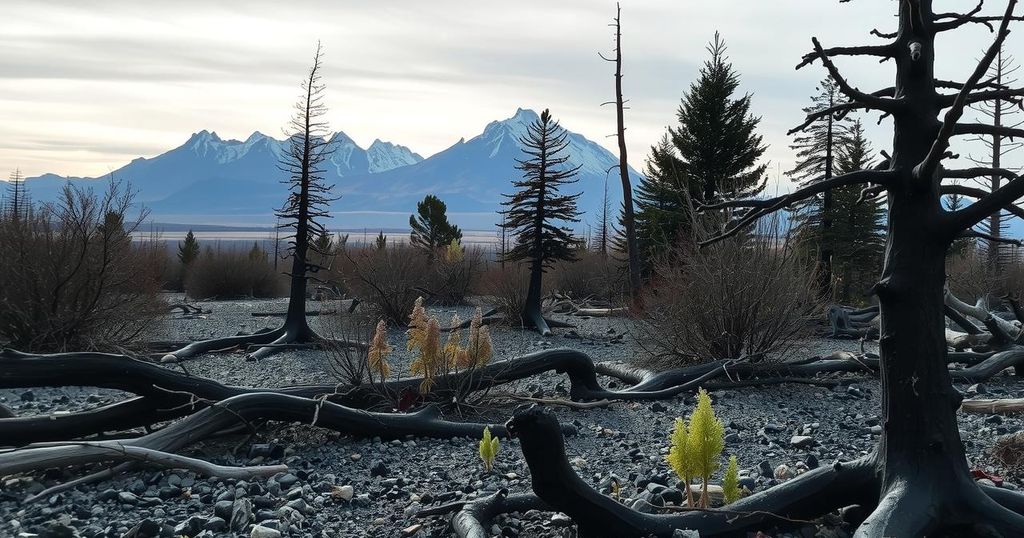Argentine authorities are officially designating the Ancestral Mapuche Resistance (RAM) as a terrorist group in light of their involvement in recent wildfires attributed to arson. Facundo Jones-Huala, a prominent leader within RAM, has publicly called for armed struggle against landowners, prompting the government to file criminal complaints against him. This development underscores ongoing tensions surrounding indigenous rights and environmental management in Patagonia.
On Tuesday, Argentine Security Minister Patricia Bullrich announced that the government of President Javier Milei intends to label the Ancestral Mapuche Resistance (RAM) as a terrorist organization. This decision comes in response to the actions of Facundo Jones-Huala, the group’s leader, who acknowledged responsibility for recent wildfires in Patagonia and encouraged armed struggle among his followers. Jones-Huala has denied his involvement in the environmental destruction caused by the fires, claiming his focus is only on opposing landowners.
Minister Bullrich emphasized the government’s commitment to combating violence, stating, “In the Argentina of President Javier Milei there is no place for violence, neither for criminals nor for terrorists.” She detailed the government’s intention to lodge a criminal complaint against Jones-Huala, accused of inciting violence and orchestrating attacks that have impacted the community.
The Argentine federal government and the Chubut provincial government filed formal complaints against Jones-Huala based on his proclamations regarding arson in Patagonia. He has openly admitted to participating in arson due to his disdain for capitalist structures and land ownership, linking his past imprisonment in Chile for similar offenses to his current activities.
Furthermore, the Chubut authorities have attributed recent wildfires to the activities of RAM, stating that Jones-Huala’s presence in the area coincides with a spike in violence, including the use of Molotov cocktails against property related to landowners. The activist’s statements reflect a revolutionary zeal, identified as anti-capitalist and anti-system by the group and its supporters.
Chubut Governor Ignacio Torres has consistently asserted that the RAM is responsible for the rampant forest fires in the region. The ongoing investigation into RAM’s activities aims to curb their influence and end the violence associated with their campaign against perceived colonialism in Patagonia.
This unfolding situation involves the Ancestral Mapuche Resistance (RAM), a group representing the indigenous Mapuche people’s claims against landowners in Argentina. The group has been implicated in various violent incidents, including recent wildfires that have threatened both natural and human resources in Patagonia. In response, governmental authorities are taking strict measures to curb their activities and affirm state control over violent actions linked to this group.
The Argentine government’s decision to classify the RAM as a terrorist organization reflects a serious approach towards addressing violence linked to indigenous activism in Patagonia. The government’s actions denote a larger context of tension surrounding land ownership, environmental protection, and indigenous rights. By acting decisively against leaders who incite violence, the government aims to restore law and order while navigating the complex dynamics of indigenous claims in Argentina.
Original Source: en.mercopress.com




